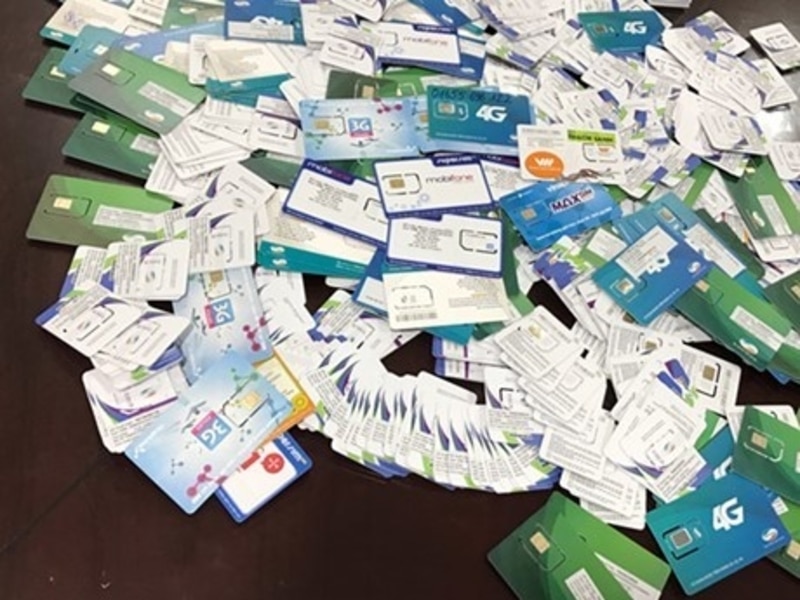
Local telecom providers have blocked and retrieved 21 million pre-activated SIM cards in three months, according to the Ministry of Information and Communications (MIC).
The MIC Vietnam Telecommunications Authority (VNTA) in June requested operators to handle SIM cards that are suspected of being pre-activated on their distribution channels to reduce spam text messages and improve security by ensuring only officially registered SIM cards are used. Telecom firms were asked to connect their subscribers’ registration database to VNTA and build and apply criteria to prevent pre-activation on distribution channels with a high frequency.
Telecom businesses have also deployed artificial intelligence (AI) and photo matching tools to prevent the use of invalid documents and fake profile photos. In July, the total number of mobile phone subscribers nationwide decreased by 8 million (6%) over the same period last year (from 133.7 million to 125.7 million.
VNTA noted that to prevent the selling of junk SIM cards, telecom firms such as Viettel, VNPT, and MobiFone have taken many measures to stop selling SIM cards at authorised dealers as well as stop the right to connect subscriber numbers of authorised agents from the beginning of June. Instead, they must focus on selling SIM cards and registering subscriber information using their own telecommunications service transaction locations.
The VNTA plans to complete a legal corridor for the prevention of junk SIM cards and promote technical measures in managing subscriber information. In particular, it is necessary to ask leaders of mobile telecommunication businesses to be responsible for junk SIM cards. The ministry will report to the Prime Minister for handling, review, and not licensing new services for providers violating the requirement.
It will continue to supervise and inspect the subscriber development from big agents of mobile telecom providers. At the same time, it will promote the standardisation of subscriber information from data sources with high accuracy such as insurance, health care, and banking. Pre-activated SIM cards used to be widely available for purchase without the registration of details.
The government earlier issued a decree on the prevention of spam messages, spam emails, and spam calls. The decree outlines eight measures to prevent spam messages, spam emails, and spam calls:
- Building anti-spam systems
- Developing criteria to identify spam messages, spam emails, and spam calls
- Monitoring and sharing information and databases on sources of spam
- Collecting and handling complaints
- Supervising advertising service provision via text messages, emails, and calls
- Preventing and revoking electronic addresses spreading spam messages, spam emails, and spam calls
- Strengthening domestic coordination and international cooperation
- Raising awareness of spam prevention
The Authority of Information Security under MIC is responsible for building and operating a system that collects spam complaints. Advertisers shall have to send a copy of each text message to the system once they send out to prospective customers. Users can complain by forwarding spam messages to the systems.
Firms providing Internet and telecommunication services shall have to comply with the MIC’s requirements on the prevention and handling of spam. The decree shall come into effect from 1 October.
















